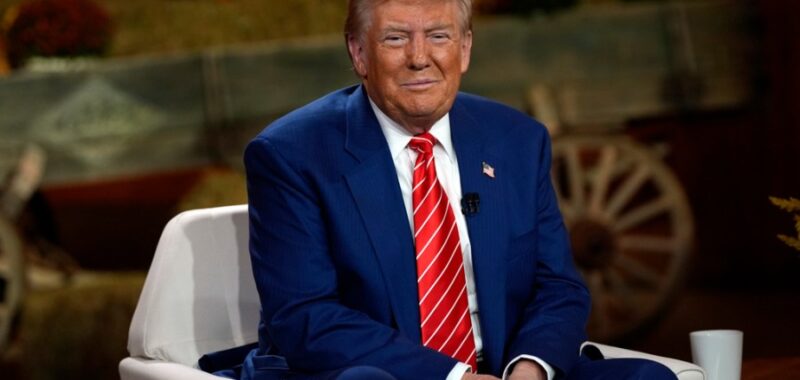
For me, Donald Trump is like pornography — he has no socially redeeming value.
He’s a narcissistic, misogynist, bigoted, autocratic bully who is a congenital liar and dangerously detached from reality.
Yet almost half the country appears poised to vote for him.
Democrats certainly needn’t like Trump, but we damn well better understand why so many people do and not simply brand his supporters as “deplorables” like their candidate.
After the 2016 elections, I was asked to author a book chapter exploring his initial electoral appeal, which I argued arose from uniting three strands of conservatism, each based on an aversion — aversion to government, aversion to change and aversion to difference.
Denouncing Democrats as the party of Big Government has been standard Republican fare for decades. Today, slightly over half the country expresses an aversion to a government they consider too big, and almost all of them support Trump. The large minority who look favorably on a more active government reside overwhelmingly in the Kamala Harris camp.
Aversion to change emerges from classic conservatism’s respect for tradition. As Edmund Burke wrote: “When ancient opinions and rules of life are taken away, the loss cannot possibly be estimated. From that moment, we have no compass to govern us, nor can we know distinctly to what port to steer.”
Trump has fashioned himself an enemy of the changes that occurred in this country since the 1950s. Whether abortion rights, increased diversity or religious decline, Trump positioned himself as the guardian of “tradition” and the adversary of change.
Trump urges a return to something older, to ancient opinions and rules of life that Democrats had taken away. He promises to restore an America that may have never been, but one his supporters believed once was.
A clear sign of the disdain felt by a majority for the cultural transformations wrought in this country comes in responses to a poll question asking voters to evaluate the changes in “American culture and way of life” since the 1950s.
As in 2016, over half now say it has gotten worse since the 1950s.
Aversion to difference appeared dormant for some years, until Trump reignited these passions, giving them a central role in his campaigns.
Establishment Republicans urged the party to embrace America’s diversity and its immigrant communities. Instead, Trump attacked them, fanning the flames of inter-group hostility — and found a receptive audience.
Unfortunately, instantiating these feelings is not so difficult.
Experiments conducted at Yale and UC Santa Barbara found one could increase people’s political conservatism, their racial bias, their animosity toward immigrants and their support for Trump simply by reminding them that the U.S. would become a majority-minority country by 2042.
Trump’s appeal transcends ideology, though.
Those averse to government tend to embrace the private sector. Who better to run government like a business than a billionaire businessman? Despite dishonestly inflating his success, compared to some 350 million other Americans, Trump did do pretty well financially, albeit often by making sure others were left holding the bag for his failures.
Moreover, voters seem to recall a successful pre-COVID economy under Trump. Almost two-thirds tell pollsters the Trump economy was good. As President Obama reminds us, it was his economy, not Trump’s. But Trump benefits from having been seated in the Oval at the time.
Trump’s appeal was sealed by his authenticity — never a word I would associate with the former president.
But by giving voice to the concerns of his constituents, saying aloud what they said only in private and by being willing to suffer the opprobrium of the establishment for doing so, Trump proved to his followers that he really meant it — that he was authentic.
Despite the appeals, Trump’s weaknesses are legion, and he can be defeated. But no one should underestimate the challenge or the wellsprings of his support.
Mark Mellman is a pollster and president of The Mellman Group, a political consultancy. He is also president of Democratic Majority for Israel.

